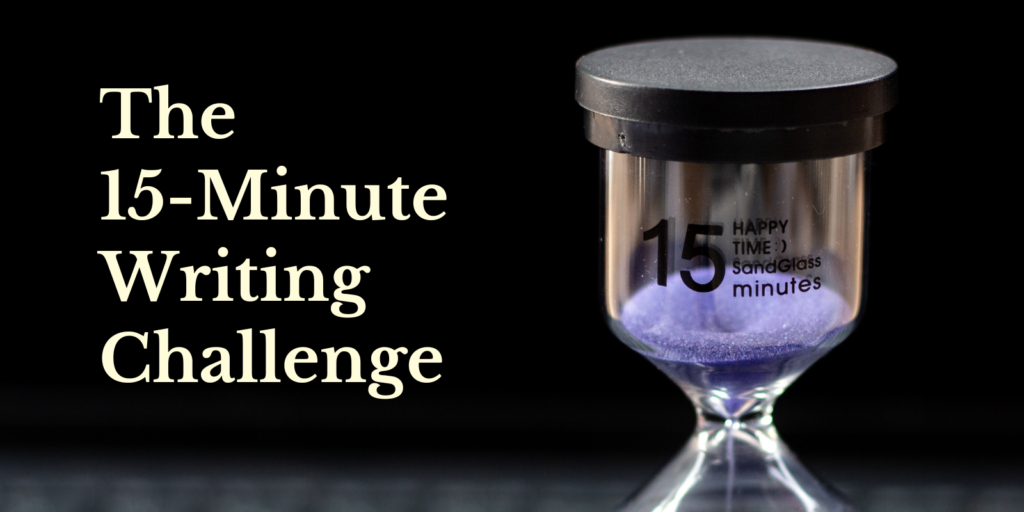You have more time to write than you think!

Writing is central to your career and to your identity. And yet it is often very difficult to find the time to write and to prioritize writing in the face of all of the other demands on your time.
I have written a lot about this dilemma over the years, and published a book, Finding Time for your Scholarly Writing, that summarizes my overall approach.
TL:DR You need to use the time you actually have because there just isn’t enough of the kind of time you really want.
What could *you* do with 15 minutes?
I created the 15-Minute Writing Challenge to help you start using very short amounts of time to enhance your writing practice.
By “very short”, I mean less than 30 minutes.
The biggest challenge you face is believing that these small bits of time will actually be worthwhile.
This Challenge is an experiment to help you figure out:
- Different ways you can use your time for writing.
- What kind of difference it makes *for you*.
- What *your* challenges are with using this kind of time.
What you can expect
I’ve created a short email course to support you that includes:
- 1 email per day for 4 days to help you set up your experiment
- An email check in after 2 weeks.
- An email after 4 weeks with prompts to help you evaluate your experiment and make decisions on what to do next.
All email for this challenge has “15-Minute Writing Challenge” in the subject line to make it easier to triage your inbox. We understand Email Overwhelm is a very real problem.
You’ll also be added to my newsletter to help stay in touch past the 4 week course. If you are not already on it, you’ll receive the standard welcome email outlining what to expect.
15-Minute Writing Challenge registration
Submit this form to be added to our newsletter list and receive the 15-Minute Writing Challenge course by email.
Not ready for the 15 Minute Challenge?
Sign up for the newsletter for monthly posts on academic writing, managing your time, and other issues related to making your academic career more satisfying.






